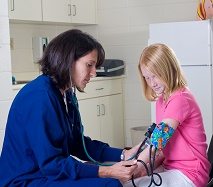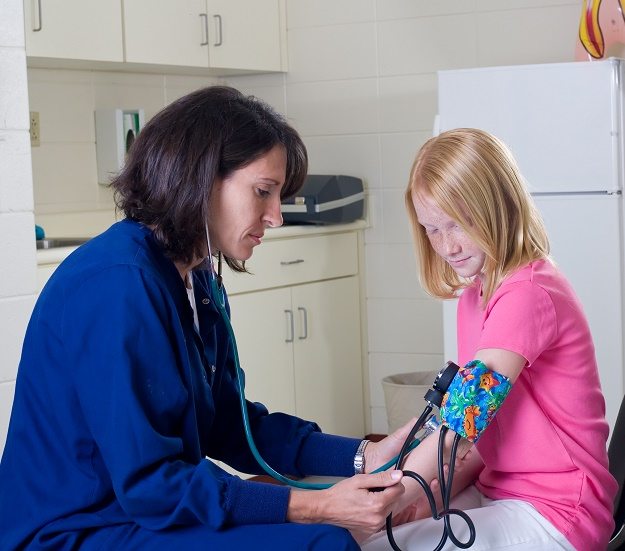More than just Bandages

“School nurses are the face of health care in school for the 50 million students in our schools. School nurses make a difference in the lives of children every day” states Beth Mattey, NASN President.
School nurses may be known for bandage and booboo care, but there is so much more to what we do. In any class you will find students with asthma, life threatening allergies, diabetes, autism, attention deficit disorders, and mental health issues. These students may also be from single parent families, may not have health insurance, from families that do not speak English, may need glasses, may be hungry or overweight, or both, may in fact be homeless, and other home and community factors that affect their learning. School nurses support vaccine compliance and promote the use of flu vaccine every year for students, families, and school staff.
This is where school nurses really earn their stripes. They provide care coordination for students with chronic illnesses, which means they give medications and health care in schools as needed, communicate with families and primary care providers, and find community resources to help them and their families. School nurses provide health education to classes about nutrition, physical activity, hygiene, oral health, and many other health issues. School nurses address the whole student and many other factors in school environment that affect learning, such as the school indoor air quality, safe places for the student to play, before and after school care, for example. Many or most schools provide lunch for students and now provide breakfast for some or all students. Research has shown that students who eat breakfast pay attention better in class. School nurses encourage students to eat nutritious meals and have activity throughout the day.
School nurses have a role in addressing and reducing chronic tardiness and absenteeism. Students miss school for various physical, social, economic, environmental and health reason. School nurses are also very involved in disaster preparedness at school. Recent events indicate that school health teams and policies are necessary for students to feel safe at school. School nurses know how to help students who may be experiencing an asthma episode, a life-threatening allergic reaction, a seizure, low blood sugar, sudden cardiac arrest, school yard injuries, and other health emergencies. School nurses collaborate with community emergency resources to ensure that they are prepared for many emergencies. Parents depend on that.
How can you help? About 85% of schools have a school nurse, but many do not have a nurse in school every day, all day. Evidence shows that a school nurse in the building saves time for teachers, principles, and other school staff that may have to take time out of their assigned duties to help a student with a health concern, which would be better served with a school nurse. Other evidence shows that when there is a school nurse in the building students return to class at a much higher rate. Students must be in their seats, ready to learn in order to be successful. You can advocate for a school nurse to be in the building every day, all day. Please visit www.nasn.org to find out more about how school nurses help your children.
Better Health. Better Learning.
Every child, parent and teacher deserves a school nurse!
The National Association of School Nurses (NASN) advances the specialty practice of school nursing to improve the health and academic success of all students.
For more ideas for getting involved at your child’s school, take a look at these other posts from Together Counts!

